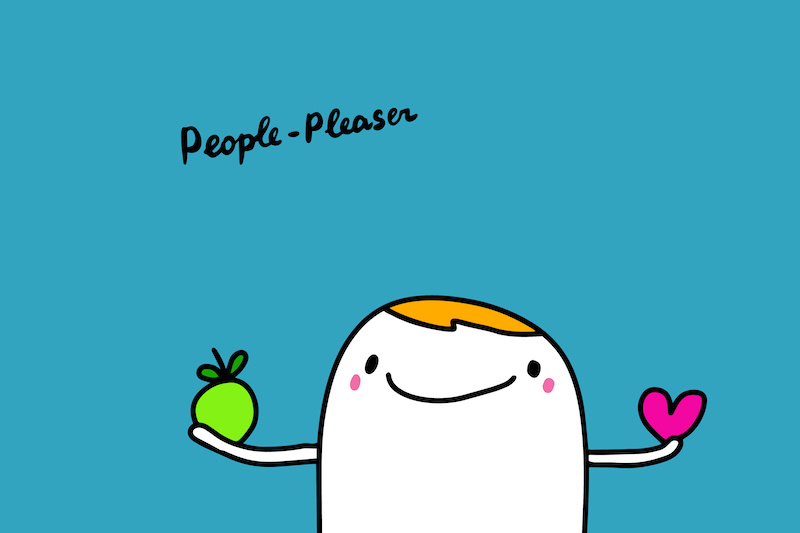Three Tips to Teach Your Child Emotional Intelligence

Emotional Intelligence (EI): Your ability to manage and understand emotions and relationships, your own as well as others’.
Research has shown that Emotional Intelligence is more vital to life success and satisfaction than general intelligence. This makes EI a very important skill for parents to teach their children.
The good news: Children automatically learn EI when they are raised by parents who have it themselves. Parents with EI are able to understand what their child is feeling and why. Their emotionally attuned responses to the child model and teach him how to read, understand, and respond to his own and others’ feelings in a healthy way.
The bad news: A parent who struggles with EI himself may lack the skills necessary to be able to teach them to his child. In other words, you can’t teach your child what you don’t know. This is why low EI is self-perpetuating through generations of families.
One way to make sure that you do not teach your child about emotion is to simply ignore his emotions while you are raising him (Childhood Emotional Neglect). If you seem not to notice that your child is upset, sad, angry, hurt, or anxious, you are subtly telling him that his sadness, anger, pain, or anxiety don’t matter. You are teaching him to ignore his own feelings.
Emotionally neglected children grow up to experience a variety of challenges, only one of which is low Emotional Intelligence. As adults, these children also struggle with excessive guilt and self-blame, feelings of emptiness, and a general lack of joy in life.
No loving parent wants to set her child up for that scenario. But parenting is probably the most complicated job in the world. In fact, it is built into the natural process of parenting that even the most loving parents will pass their own strengths and weaknesses on to their children. Often, the only way to stop that cycle is to consciously make the effort to override it.
Three Parenting Tips to Maximize Your Child’s Emotional Intelligence
- Pay attention. Work hard to see your child’s true nature. What does your child like, dislike, get angry about, feel afraid of, or struggle with? Feed these observations back to your child in a non-judgmental way so that your child can see herself through your eyes, and so that she can feel how well you know her.
Life Advantage: Your child will see herself reflected in your eyes, and she will know who she is. This will give her confidence in her life choices and will make her resilient to life’s challenges.
- Feel an emotional connection to your child. Strive to feel what your child is feeling (empathy), whether you agree with it or not. When you feel your child’s emotion, he will feel an instant bond with you.
Life Advantage: Your child will learn empathy and will have healthier relationships throughout his life.
- Respond competently to your child’s emotional needs. Do not judge your child’s feeling as right or wrong. Look beyond the feeling, to the source. Help your child name her emotion. Help her manage the emotion.
Life Advantage: Your child will have a healthy relationship with his own emotions. He will naturally know that his feelings are important and how to put them into words and manage them.
No parent can follow these tips perfectly, of course. This is not about perfection; it’s about making the effort. Effort in itself shows love and care. When your child sees you trying to understand his feelings or feel his feelings, whether you succeed or not, he receives a powerful message:
And what your child will hear:
You matter.
Childhood Emotional Neglect (CEN) is often invisible and unmemorable. To find out if it is at work in your life, Take The CEN Questionnaire. It’s free.
To learn more about Childhood Emotional Neglect, see my first book Running on Empty.
This article was originally published on Psychcentral.com and has been republished here with the permission of the author and PsychCentral
Your Parents: 10 Signs You May Need Some Healthy Boundaries

Few would disagree that parents have the most difficult job in the world. And the huge majority of parents are doing the very best they can for their children.
As much empathy as I have for parents (being one myself), today I will be talking with all who are on the other side of the fence: those of you who are grown up now and are feeling that your relationship with your parents is challenging in some way.
There are indeed an infinite amount of ways that a parent/child relationship can go wrong. Many are subtle or confusing and can leave all parties feeling burdened or hurt.
Especially if you know that your parents love you, you may end up baffled about your relationship with them, and wondering what is wrong.
6 Common Ways Adults Struggle With Their Parents
- You may feel guilty for not wanting to spend more time with them
- You may feel very loving toward them one minute, and angry the next
- You may look forward to seeing them, and then feel let down or disappointed when you’re actually with them
- You may find yourself snapping at them and confused about why you’re doing it
- You may get physically ill when you see them
- You may harbor anger at them, and feel there’s no reason for it
How does this happen? Why does this relationship have to be so complicated? Why can’t we just love our parents unconditionally?
Of course, there can be endless different explanations for any of these problems. But for most people, the answer lies somewhere in the area of what psychologists call individuation.
What is Individuation?
Individuation is the natural, healthy process of the child becoming increasingly separate from the parent by developing his or her own personality, interests, and life apart from the parent.
Individuation usually starts around age 13 but can be as early as 11 or as late as 16. Behaviors we think of as “teenage rebellion” are actually attempts to separate. Talking back, breaking rules, disagreeing, refusing to spend time with the family; all are ways of saying, and feeling, “I’m me, and I make my own decisions.”
Individuation is indeed a delicate process, and it doesn’t always go smoothly. When it doesn’t, and also goes unresolved, it can create a stressful or painful relationship between parent and adult child.
4 Ways Individuation Can Go Awry
- The parent does not know that the child’s individuation is natural and healthy, and discourages it. This parent may feel hurt by the child’s separation, or even be angered by it, making the child feel guilty for developing normally.
- The parent wants the child to stay close to take care of the parent’s needs, so actively discourages the child from separating.
- The parent is uncomfortable with the child’s needs, and so encourages the child to be excessively independent at too early an age (an example of Childhood Emotional Neglect or CEN).
- The child is held back from healthy individuation by some conflict or issue of his or her own, like anxiety, depression, a physical or medical ailment, or guilt.
When your adolescence gets off track in any of these ways, a price is paid by both you and your parents. Much later, when you’re trying to live your adult life, you may sadly find yourself feeling burdened, pained, or held back by your parents. On top of that, you might feel guilty for feeling that way.
So now the big question.
How Do You Know if You Need Some Healthy Distance From Your Parents?
- Do you feel held back from growing, developing, or moving forward in your life by your parents?
- Is your relationship with your parents negatively affecting how you parent your own children?
- Are you afraid of surpassing your parents? Would they be hurt or upset if you become more successful in life than they?
- Are you plagued with guilt when it comes to your parents?
- Are your parents manipulating you in any way?
- Are their needs coming before your own (the exception is if they are elderly or ill)?
- Were/are your parents abusive to you in any way, however subtle?
- Have you tried to talk with them and solve things, to no avail?
- Do you feel that your parents don’t really know you?
- Do your parents stir up trouble in your life?
If you answered yes to one or more of these questions, and you also feel burdened by your relationship with your parents, it may be a sign that you need some distance to maximize your own personal growth and health.
You and Your Parents
Yes, parenting truly is the hardest job in the world. But parents are meant to launch you, not limit you. If your individuation didn’t happen properly through your adolescence, you may need to work at separating from your parents now in order to have the healthy, strong, independent life that you are meant to live.
So what does distancing mean when it comes to parents? It doesn’t mean moving farther away. It doesn’t mean being less kind or loving toward them. It doesn’t necessarily mean doing anything drastically different. In fact, distance can be achieved by changing yourself and your own internal response to what happens between you. I know this sounds difficult and complicated.
Guilt is, for many, built into the adult separation process, unfortunately. So separating from your parents may be no less painful now, as an adult, than it was when you were an adolescent. But the good news is, you are grown up. You’re developed. You’re stronger. Now you can better understand what’s wrong.
To learn more about how even loving parents can have a blind spot to their child’s feelings, disrupting individuation, and to find out what you can do about it now, see the books Running on Empty: Overcome Your Childhood Emotional Neglect and Running On Empty No More: Transform Your Relationships With Your Partner, Your Parents & Your Children.
A version of this article was originally published on Psychcentral.com. It has been republished here with the permission of the author and Psychcentral.
4 Ways You Can Use Your Anger to Make Yourself More Powerful

Of all human emotions, the one that people struggle with the most is anger. That’s understandable!
After all, it’s the emotion with the most potential to get us into trouble. It can be exquisitely uncomfortable, and it’s the most difficult to control.
Many people find it easier to push anger down altogether (or suppress it) to avoid discomfort and conflict and to stay out of trouble.
Some wear anger like armor in hopes it will protect them from being hurt or mistreated.
Others go back and forth between pushing it down and erupting. In fact, these two things go together. The more you suppress your anger, the more intense it will be when it finally erupts.
If you were raised by parents who had low tolerance for your feelings (Childhood Emotional Neglect, or CEN), then you may be all too good at pushing your anger away; suppressing it and repressing it so that you don’t even have to feel it.
In fact, you may – especially if you have CEN – be so uncomfortable with the A-Word that you can’t even say it.
I’m frustrated
I’m annoyed
I’m anxious
you may say instead of, I’m angry.
If you’re not comfortable with your anger, you’re more likely to misread and mislabel it as something milder or more diffuse.
“Isn’t stopping yourself from feeling angry a good skill to have?” you may be wondering.
The answer is actually NO.
Research has shown how very important anger is to living a healthy life.
4 Reasons to Make Friends With Your Anger
- Anger is a beautiful motivator
Aarts et al. (2010) found that people who were shown a picture of an angry face were more driven to obtain an object that they were shown later. Anger is like a driver that pushes you to strive for what you want or need. Anger carries with it the message, “Act!”
Example Without Anger: Alana was getting weary of being overlooked at work. She was well-known to be skilled and reliable, and yet she was repeatedly passed over for promotion to manager. Silently she watched younger, less experienced employees move past her, one by one.
Example With Anger: Alana became angry when a less-experienced colleague was promoted. “I deserve an explanation for this. I have to get myself promoted or leave the company,” she realized. The next day she walked into her supervisor’s office and asked why she was passed over. She was promised the next promotion slot.
2. Anger can make your relationship better and stronger
Anger, when used appropriately, can be very helpful in communication:
Baumeister et al. (1990) found that hiding anger in intimate relationships can be detrimental. When you hide your anger from your partner, you’re bypassing an important message that he or she may very much need to hear.
Of course, it’s important to take great care in how you express your anger. Try your best to calibrate it to the situation and express it with as much compassion for your partner as you can.
Example Without Anger: Lance was tired of his wife Joanne’s clutter. She kept, it seemed to Lance, virtually everything. There were stacks of newspapers on the dining room table, five pairs of sneakers of various ages in their closet, and a roomful of clothes that their children had outgrown. Lance wanted that room for an office. “I’ll never get that room,” he thought resignedly. All this time Joanne had no idea that there was a problem.
Example With Anger: Lance was fed up with the clutter. He told Joanne that it was making him feel stressed and unhappy, and also angry at her. After several heated discussions, Joanne removed her personal clutter from the spare room so that Lance could make it his office. They made a truce to try to meet each other in the middle.
3. Anger can help you better understand yourself
Anger can provide insight into ourselves if we allow it.
Kassinove et al. (1997) asked a large sample of people how recent outbursts of anger had affected them. Fifty-five percent said that getting angry had led to a positive outcome. Many respondents said that the anger episode had provided them with some insight into their own faults.
Anger can help you see yourself more clearly. And it can motivate self-change.
Example Without Anger: Joanne was surprised when Lance told her how angry her clutter was making him. “That’s too bad, you’ll just have to deal with it,” she said dully while exiting the room. She promptly put it out of her mind because she didn’t want to think about it.
Example With Anger: “That’s too bad, you’ll just have to deal with it,” Joanne fired back immediately. She stormed out of the room and slammed the bedroom door. Sitting on her bed she felt enraged and criticized.
The next day Joanne woke up with a different perspective on the conflict. She looked around and saw her home as though through Lance’s eyes. She realized that she felt criticized by Lance’s request. “I need to get better at taking criticism,” she thought.
4. Anger helps you negotiate
Anger can help you get what you want.
In a study of negotiation by Van Kleef et al. (2002), people made larger concessions and fewer demands of participants who were angry than ones who were not angry.
Anger makes you more powerful, especially when it’s justified and expressed with thought and care. Lets revisit Alana, who needed to have a difficult conversation with her supervisor.
Example Without Anger: Alana walked timidly into her supervisor’s office. After chatting about the weather, she said casually, “So what do I need to do to get promoted?” Her boss answered her question and went on with her day.
Example With Anger: Alana knew she was angry and that she needed to manage her anger when talking with her boss if she wanted to be effective. She walked into her boss’s office and said, “I need to talk to you about something important.” Alana explained how upset she was by her co-worker’s promotion. Her boss explained that the promoted co-worker was an excellent employee. This made Alana even angrier. She pushed, “Yes, he’s really good. But so am I, and I have more experience and excellent skills,” she stated clearly. Her boss paused, surprised at Alana’s persistence. “You’re right,” she said. Her boss then promised Alana the next available promotion.
If you grew up emotionally ignored or in an environment that did not have the room or tolerance for you to get angry (CEN), some small part of your brain probably screams “STOP!” as soon as you get an inkling of anger. The reality is that it’s not easy to turn that around.
But you can do it. Start thinking of anger as a helpful emotion, not something to avoid. Pay attention to your anger, and try to notice when you’re feeling it. Stop saying “STOP!” to your anger. Instead, listen to your anger’s message, consciously manage your angry feeling, and let your anger motivate and energize you.
Anger, when properly managed and expressed, is power.
So when you suppress your anger, you’re suppressing your power.
And why would you do that?
To learn more about how Childhood Emotional Neglect makes you unaware of your feelings of anger see the book, Running On Empty: Overcome Your Childhood Emotional Neglect.
Everyday Struggle of a Notorious People Pleaser

Guest post by Joanna Rogowska:
I like to reward myself at the end of the week with a delicious meal with friends. It’s my weekly treat. I also like to check out new restaurants. So when my two good friends Lucy and Jane suggested meeting in our favorite burger place, I proposed a new Japanese restaurant instead. I had heard good things about the food and what caught my interest was their new interactive ordering system with overhead projection technology.
I’d read that each table in the restaurant was equipped with a built-in tablet. You could select your virtual tablecloth, explore the menu, project a picture of the meal onto your table, and of course, also order your food. I love new technological gadgets!
When we arrived, I fell in love with this place straight away – beautiful and authentic Japanese decor, lotus flowers, cherry blossoms, bamboo benches, and high-tech tables. A fantastic combination of traditional and modern Japan.
Lucy and I started ordering the meal, getting all excited about it. It was a really cool experience to be able to project the picture of each meal onto the plate in front of you. We played around with changing virtual table cloths, debating which one we were going to choose for our table. I realized that I was feeling something.
Playful, connected, excited, and happy.
As we were exploring the technological possibilities at our table, Jane suddenly called the waiter over and asked for a paper menu. “I really don’t know how to make this digital stuff work!” she told us. “It’s really not intuitive and annoying. I prefer a normal menu.”
Suddenly my pleasant feelings disappeared and a big sense of heaviness took their place. I suddenly felt overwhelmingly bad. I looked at Lucy and she seemed to continue enjoying looking through the menu and ordering her meal. But for me, as soon as Jane asked for a paper menu, I stopped enjoying the evening.
In the past, before learning how to master my emotions, I would have sat miserably throughout the rest of the meal feeling confused and simply “bad.” I would have let this ruin my evening. Now I knew better, and it was time to check in with my feelings to investigate what was going on. So I tuned in to my emotions.
Annoyed, Irritable.
Makes sense. I was looking forward to dinner today and suddenly I was not able to enjoy it. My intention was to relax and have a good time and now I was far from that, so I felt angry. But the big question was, why was I not enjoying the evening? I knew I had to dig deeper to find the right feelings.
Insecure, awkward, guilty, and ashamed.
As soon as I identified shame, I felt a sense of relief. It made so much sense for two reasons. First of all, I know I am a compulsive people pleaser. I tend to always put other people’s needs in front of my own. I cannot have a good time if I see that my friends are not enjoying themselves. So seeing Jane not enjoying the technology made me feel guilty for suggesting to go there.
But I knew there was more behind this feeling so I dug deeper. I had known that Jane was not a big fan of technology, yet I had still suggested this restaurant. How could I have been so inconsiderate? All I could think of was the fact that I was stupid because I couldn’t even pick the right restaurant for my friends…
Going through these feelings in my head brought me a sense of relief. I was feeling less and less overwhelmed and uncomfortable and beginning to feel some new feelings.
Clear, confident, and capable.
My feelings reminded me that the well-being of my friends was important to me. So I thanked my feelings for drawing my attention to the situation. I accepted my feelings and released them. I also accepted that my inner critic blew the situation slightly out of proportion, as things were actually going well. It was difficult to accept that, but it felt liberating to do so.
Finally, I reassured myself that Jane, having received her paper menu, was enjoying selecting her meal in a more traditional way and no one was thinking any less of me for choosing this location.
I once again felt what I had felt at the beginning of the evening.
Connected, joyful, and excited.
The dinner turned out to be fantastic. We had a great time and we were pleased with the new discovery we made and the food we ate.
How quickly I could have let my emotions take over and ruin my evening if I hadn’t paid attention to them and made the effort to understand them. That was a reminder to me once again of how important it is for me to observe myself and try to understand my feelings.
The author, Joanna Rogowska, is a researcher for FeelingMagnets.com. Feeling Magnets are a helpful tool to get you more in touch with your emotions and learn how to use them.
To learn more about how to recognize, use, and express your emotions see the book, Running on Empty.
7 Common False Beliefs About Relationships

7 Common False Beliefs About Relationships
- Sharing your feelings with others will make you look weak.
- It’s best not to fight if you want to have a good relationship.
- Sharing your feelings or troubles with another person burdens them.
- Talking about a problem isn’t helpful. Only action solves a problem.
- Sharing your feelings or troubles with another person will chase them away.
- Letting others see your weaknesses puts you at a disadvantage.
- If you let other people see how you feel, they will use it against you.
As you read the list of beliefs above, did any jump out at you? Was there one, or two, or more, that you thought, “Hey, that one’s not false!”?
If so, you are not alone. Many, many people go through their lives following some or all of these guidelines. And many, many people are held back by them. These beliefs have the power to keep you at an emotional distance from others, damage your friendships and marriage, and leave you feeling alone in the world.
The beliefs are typically rooted in your childhood. They are often messages passed down from one generation to another. They take root in your mind and live there, sometimes outside of your awareness.
How Childhood Emotional Neglect Teaches You the False Beliefs
These ideas tend to thrive in any family that struggles with emotions, either by over or under-expressing it. They’re so common among folks who grew up with Childhood Emotional Neglect (CEN) that they’re included in my book, Running on Empty. All of the beliefs are based on false notions of how emotions work.
If you grew up in a family that didn’t understand how to manage, express or talk about emotion, you probably didn’t learn how and when to share or be vulnerable. You may have learned that it’s actually wrong to communicate about these things.
And chances are some of the 7 beliefs were communicated to you, either directly or indirectly.
The 7 False Beliefs Made True
- Letting people see your feelings usually makes them like you more. It also fosters intimacy.
- The hallmark of a strong, healthy relationship or friendship is the ability to have a conflict, process it together, and work through it together. In fact, fighting is often a sign of closeness.
- Sharing your feelings or troubles with the right person at the right time does not burden them. It increases warmth and caring from the other person.
- Talking about a problem with a well-chosen person can help you get perspective, feel less burdened, sort out your feelings and thoughts, and sometimes even provide solutions
- Sharing your feelings or troubles with the right person will make him/her feel closer to you.
- Letting another person see your weakness does not put you at a disadvantage unless the other person is the type of person to take advantage of you. Be aware of who you’re letting in. The huge majority of people will not take advantage.
- If you let someone see how you feel, they will know and understand you better, and that’s a good thing. The only exception to this is if they are actively trying to hurt you. Generally, if there are people like this in your life, you know who they are. Do not share with them.
How To Change Your Beliefs From False to True
- Choose your people carefully. Take care who you choose to open your heart to, as either a friend or lover. Focus on integrity, trust, and care. Pay attention to the other person’s intentions. None of the True Beliefs apply if the person is not trustworthy.
- Timing is everything. We all underestimate the importance of timing. Choose your moment, taking into account the other person’s mood, needs, and situation. The same message can have a very different impact given at the wrong time vs. the right one.
- Take chances. There is no intimacy without vulnerability. To change these beliefs, you will have to put yourself in uncomfortable situations.
- The Costanza Experiment (Taken from the book Running on Empty): Remember the Seinfeld episode when George decided to go through an entire week doing the opposite of what he would normally do? (If you’re under 40, you may not have seen this, but the concept will still work for you.) For you, this would mean doing the opposite of what you would normally do when it comes to sharing your feelings. Tell your friend about your work worries instead of keeping them to yourself; share your financial stress with your brother instead of pretending everything’s fine; fight it out with your husband and wife instead of avoiding conflict.
Take a chance, and see what happens. The False Beliefs will start to melt away as you begin to experience the value of trust, openness, and closeness. Your relationships will thrive, and a whole new world will open up to you.
To learn more about emotions, relationships, and Childhood Emotional Neglect (CEN) see the books Running On Empty: Overcome Your Childhood Emotional Neglect and Running On Empty No More: Transform Your Relationships.
Childhood Emotional Neglect: How to Stop Your Fatal Flaw in its Tracks

The Fatal Flaw: A deep-seated feeling that something is wrong with you. You are missing something that other people have. You are living life on the outside, looking in. You don’t quite fit in anywhere.
If you grew up with Childhood Emotional Neglect (CEN), chances are, The Fatal Flaw is at work in your life.
If you pushed your feelings away as a child, you now lack access to them as an adult. You sense deep down that something is missing (it’s your emotions). And your life lacks the richness, connection and meaning that your feelings should be bringing to your life. This is the basic cause of the Fatal Flaw. Most people who have it are not aware of it, and this gives it incredible power.
The 7 Key Effects of Your Fatal Flaw
- You are not in touch with your gut feelings, so you don’t trust your gut (even though for the majority of CEN folks, their gut is most often right).
- It undermines your confidence to take risks.
- It makes you uncomfortable in social situations.
- It keeps many of your relationships at a surface level.
- It makes you question the meaning and purpose of your life.
- It makes you fear that if people get to know you well, they won’t like what they see.
- Therefore you are quite fearful of rejection.
6 Ways to Take Control of Your Fatal Flaw
- Become aware of your Fatal Flaw: This will take away its power.
- Understand that your Fatal Flaw is not a real flaw. It’s only a feeling.
- A feeling can be managed, so start to manage it. Pay attention to when you feel it, and how it affects you.
- Put it into words and tell someone about it.
- Override it every time that you possibly can. Do the opposite of everything your Fatal Flaw tells you to do.
- Start breaking down the wall between you and your feelings. Welcome them as the vital source of information, guidance, and richness that they are (even the painful ones).
Yes, your Fatal Flaw is powerful. But so are you. You have a great deal of personal power that is being drained by your Fatal Flaw.
So today’s the day. Declare war on your Fatal Flaw, and start using your weapons of awareness, your emotions, your intellect, and your words.
This is a battle that you can win. I promise.
To learn more about the Fatal Flaw, what caused it and how to overcome it, see the book Running on Empty: Overcome Your Childhood Emotional Neglect.
A version of this article was originally published on Psychcentral.com and has been republished here with the permission of the author.
The Faces of Emptiness: The Paths to Healing

The Fuel of life is feeling. If we are not filled up in childhood, we must fill ourselves as adults. Otherwise, we will find ourselves running on empty.
A quote from the book Running on Empty: Overcome Your Childhood Emotional Neglect
There are legions of fine people walking around feeling numb or empty, and for good reason. They all grew up in homes that did not notice their feelings or respond to them enough.
There is, indeed, a real connection between this type of childhood and that feeling. And the short quote above, in some ways, says it all.
But to summarize in a nutshell how this happens: Your parents act as if your emotions are invisible or irrelevant, so you do too. You block your emotions off to “protect” yourself from being bothered or burdened by them. You lose access to this deepest, most personal expression of who you are.
Then, as an adult, you feel it. Perhaps you know you should be feeling something but you’re not. Perhaps you look around and see other people living in a bright, colorful world but yours seems gray. Perhaps you have a deep sense of something missing inside you. Perhaps you feel an empty feeling in your belly or chest or throat.
Perhaps your body is trying to tell you that something is very wrong.
Healing Your Emptiness
Healing your emptiness is not necessarily simple, but it is definitely possible. It has been done successfully by many people before you, and it will be done by many after.
The healing process takes place in three different areas, outlined in the table below. Once you’ve looked through the 3 areas of healing your emptiness, continue on to see the steps you can take to work on this.
3 Areas to Heal Your Emptiness
| Thoughts/Behavior | Relationships | Your Inner Life |
| Recognize what you didn’t get in childhood | Increase emotional connections | Grieve what you didn’t get |
| Emotional awareness & management | Boundaries (distance?) with parents as needed | Develop compassion for yourself |
| Self-care | Work on trusting others | Decrease self-directed anger |
| Decrease self-blame | Therapy relationship | Self-acceptance & self-love |
| Increase self-knowledge | Share your pain with another | Value your emotions |
| If you have depression or anxiety, consider therapy and medication | Let down your walls | Reclaim the parts of yourself that your parents rejected or ignored |
If you find this Table overwhelming, please don’t be alarmed. As I said above, all of these can be done. I know this because I have been through them with many people in therapy, and have witnessed amazing progress.
However, please take note of two things: It takes commitment, a conscious effort, and time; and it often helps tremendously to work with a skilled therapist who you feel very comfortable with.
Follow These 3 Steps to Heal Your Emptiness
Step 1: Recognition and Grieving: The first and most vital step for everyone who feels Empty is to recognize that your empty space represents something that you didn’t get in childhood. Identify what is missing (emotional validation, connection and perhaps rejected parts of yourself), and grieve it all. This may involve feeling sad and/or angry. It’s okay. You have to feel it to move forward.
Step 2: Start to Fill the Holes: Befriend your emotions; start noticing when you have them; learn to name them and to manage them. Listen to what they are telling you.
Step 3: Work on Self-Care: Put yourself first, learn to say no. Pay attention to your own needs and recognize that your needs matter. Stop blaming yourself.
Steps 1, 2 and 3 can all be worked on by making a conscious effort, paying attention, and self-monitoring on the tracking sheets from the book Running on Empty: Overcome Your Childhood Emotional Neglect. You may want to enlist the help of a CEN therapist. Visit the Find A CEN Therapist List to find a CEN-trained therapist to help.
Step 4: Let Down Your Walls: Share with a trusted person that you are working on getting closer to people, and to accept and feel more connection and love. Try to express your feelings more and to be more assertive.
You may make more progress here by getting some emotional or physical distance from your neglectful parents. The distance can be temporary, while you work on this.
Step 5: Learn to Love Yourself: Yes, it is easier said than done. This process involves seeing yourself as the child you were, growing up as you did. What parts of you did your parents ignore or reject? Know that they did so because of who they were, not because of who you were.
Have compassion for that little child, and for yourself as an adult. Your struggle is real, and you deserve more and better. You must reclaim, and learn to love, all of the different parts of who you are: your emotions, your needs, your inner you.
Above all, as you do this work, please carry these words with you:
Your emptiness is an important part of you. It represents the old and the past, but also the future and the new.
It is not an absence but free space filled not with pain, but with possibility. It is room for your new story, the one you will write yourself. It is room for your life, your feelings, and the people who you choose.
Fill it with self-knowledge, self-care, self-compassion, self-love, and your people.
Then you will find yourself running on empty no more.
To read more about healing the effects of Childhood Emotional Neglect on your relationships see the book Running On Empty No More: Transform Your Relationships.
To learn more about Childhood Emotional Neglect, see my first book Running on Empty.
The Different Faces of Emptiness: Part 1

 Since the release of Running on Empty in 2012, many people have identified with the feeling of Empty. People who don’t have it don’t understand. But people who feel it know:
Since the release of Running on Empty in 2012, many people have identified with the feeling of Empty. People who don’t have it don’t understand. But people who feel it know:
In many ways, emptiness or numbness is worse than pain. Many people have told me that they would far prefer feeling anything to nothing. It is very difficult to acknowledge, make sense of, or put words to something that is absent. Emptiness seems like nothing to most people. And nothing is nothing, neither bad nor good. But in the case of a human being’s internal functioning, nothing is definitely something. Empty is actually a feeling in and of itself. And I have discovered that it is a feeling that can be very intense and powerful. In fact, it has the power to drive people to do extreme things to escape it.
(From Running on Empty: Overcome Your Childhood Emotional Neglect)
Empty is the” unfeeling” feeling. It’s the painful sense that some vital ingredient is missing from inside. Does it feel the same for everyone who has it? For example, does it feel different if you have depression, a personality disorder, or just straight Childhood Emotional Neglect (CEN)? The answer is yes. It all depends on one factor: how extreme were its causes?
Causes of Emptiness:
- Childhood Emotional Neglect (CEN): This is the type of Empty that I address in my book, Running on Empty. It is caused by growing up in a household that is blind to emotion. Children who grow up this way sense that their emotions are invisible and irrelevant. So they push their feelings down, so as to not burden themselves or their parents. These children grow into adults who are out of touch with their own feelings. The emptiness that results is literally a deep sense that something is missing inside; some essential ingredient that is a deeply personal and vital part of who you are. That essential ingredient is, of course, your feelings.
- Active Invalidation in Childhood: This is a more extreme version of the CEN described above. It happens when your parents are not just blind to your emotions; they actively reject your emotions. Examples are rejection (ex: “Go to your room”) or punishment for simply being sad, angry, or hurt. If you grow up this way, you learn to not just push your emotions away; but to actively reject and punish yourself for having feelings. In adulthood, your empty space will be filled with self-directed anger and self-blame. On top of feeling empty, you may feel uncomfortable in your own skin, and you may not like yourself very much overall. You may be more vulnerable to depression.
- Shallow, Harsh, Unpredictable Parenting: This is the type of childhood experience which causes significant disruption in the child’s personality that can lead to the development of a personality disorder (such as Narcissistic or Borderline). These parents respond to the child on the surface, while selectively, unpredictably rejecting and punishing his emotional responses. In addition, they greatly reward the child for being how they want him to be, and harshly reject or punish him for simply being, or feeling, himself. When you grow up this way, since you are not permitted to “be” who you are, you develop a fragmented version of who you should be. You reject parts of yourself that your parents find unacceptable, and may experience yourself as perfect one day, and horrible or worthless the next. The missing piece for this child, once grown up, is more than emotion; it’s a cohesive sense of self. This is the deepest, most painful form of Empty. This is the emptiness that is felt by people with personality disorders.
So if you have Empty Type 1 or 2, you have a cohesive “self,” but you lack access to your emotions. With Type 3, you have a fragmented “self” and little access to your emotions. But the anger and pain caused by the unpredictable, shallow and harsh treatment throughout childhood runs deep. Those emotions may erupt unpredictably and intensely, outside your control. You feel empty because you sense, deep down, that your true “self” is fragmented or missing. Sadly, you were not able to develop it while you were growing up.
Here’s the good news. All three forms of emptiness, once understood and acknowledged, can be overcome. Watch for my next post, The Different Forms of Emptiness Part II, which will be about the paths to healing when you have Emptiness Type 1, 2 or 3.
Yes, they are different.
To learn more about Childhood Emotional Neglect, see my first book Running on Empty.
This article was originally published on Psychcentral.com and has been republished here with the permission of the author and PsychCentral
Childhood Emotional Neglect: Man vs. Woman

“CEN people, both men and women, are exceptionally likable folk. This is part of the tragedy of CEN. These are some of the most lovable people in the world, and yet they feel the most alone.”
I often get asked whether Childhood Emotional Neglect (CEN) affects men and women differently. My answer is, “yes, it does.” Although the essential effects are the same, some of those effects tend to play out differently in men than in women.
In Running on Empty: Overcome Your Childhood Emotional Neglect I tried to represent both genders in my descriptions, examples, and vignettes. Before I talk about this more, I need to mention one large caveat. The differences that I’ve seen between CEN men and women are general descriptions that do not apply across the board. I often see the masculine effects in women and vice-versa. Since there is a significant crossover, please don’t take these differences too firmly or stringently. And definitely, do not think there is something wrong with you if you fit more neatly into the opposite gender. It does not indicate a problem of any kind.
As you look over the table below, you may notice that the differences are not very surprising. In recent years, neuroscientists have found that men have more connections in their brains from front to back and within each hemisphere than women, making them more suited to perception and coordinated actions. Women, on the other hand, have more connections between the hemispheres. This gives women an advantage in the areas of intuition and interpersonal processing.
TABLE OF CEN GENDER DIFFERENCES
| Adult CEN Characteristic | Women | Men |
| Emptiness or numbness | Attempt to fill selves with other people and their needs | Seek adventure to feel something or isolate themselves |
| Counter-Dependence | Seek to fill others’ needs in place of their own | Fervently embrace and pride themselves on independence & competence |
| Little Compassion For Self | Harsh judgments drive down self-esteem | Harsh judgments become pressure to be “the best,” often at work. May become driven. |
| Fatal Flaw | Feel unlikeable or unlovable | Feel invisible and overlooked |
| Struggles With Self-Discipline | Self-care suffers: eating, exercise, sleep and rest | May become overly or compulsively self-disciplined at times |
| Alexithymia | May learn the language of emotion but it’s hard to apply it to themselves | Emotions go underground and come out as irritability |
| Self-Directed Anger and Blame | Anger is directed at themselves and may turn into depression | Anger is more likely to also be turned outward at others |
Generally, men and women suffer equally when it comes to CEN. But women tend to be harder on themselves and to become excessive caretakers and givers, ignoring their own needs and feelings. They can end up feeling drained and exhausted because they are not taking care of themselves and have difficulty saying “no” to others.
Men, on the other hand, are more inclined to embrace and value the feelings of isolation and disconnection that go along with CEN. Men with CEN may misperceive their isolation as a sign of masculine strength. Yet these men are also pained by the feeling that they are not connected when they are with other people. They struggle with feeling ignored and overlooked by others but lack the words to express it.
One thing that I have seen over and over in CEN men is an acute discomfort (often anxiety) in large groups of people, especially when they are expected to socialize. In these situations, their intensive individuality combines with the feeling of being ignored to create a special type of misery.
The other primary difference I see between women and men’s CEN is what they do with their feelings. Women feel ashamed for having emotions. They turn their anger against themselves. Men are more likely to be totally unaware that they have feelings at all.
Anger is more accepted in men than in women in today’s world. So men don’t suppress their anger as much as women. Instead, they may alternate between suppressing it and then feeling it unexpectedly, sometimes directing it towards others and sometimes toward themselves.
What happens when two people with CEN form a relationship or marriage? I can tell you that it makes for some very interesting challenges. Check back to see a future blog on this topic.
Some of the most remarkable characteristics of people with CEN deserve mention here. CEN people, both men, and women are exceptionally likable folk. This is part of the tragedy of CEN. These are some of the most lovable people in the world, and yet they feel the most alone. They are typically excessively competent, stand-up folks; yet they feel invisible. They suffer because some vital ingredient is missing from their lives. Yet that missing ingredient is their own emotions, which are not missing; just suppressed.
If I could gather all of the CEN men and women in the world together in one huge room, here is what I would say to them:
“You are not invisible, and you are not to blame. You have no reason to be ashamed. Ask yourself what you feel and why, and you will find your true self there. Your emotions will become your compass, your comfort, and your connection to life. And then you will realize how very much you matter.”
To learn much more about how to heal your marriage if you and/or your spouse grew up with Childhood Emotional Neglect see the book, Running On Empty No More: Transform Your Relationships With Your Partner, Your Parents & Your Children.
To find out whether you grew up with CEN, Take The Emotional Neglect Test. It’s free.
To learn more about Childhood Emotional Neglect, see my first book Running on Empty.
“Why Can’t You Just Be Happy?” How to Heal a CEN Marriage

My husband says he loves me, but I don’t feel love from him.
My wife gets confused and overwhelmed every time I try to talk to her about a problem.
My marriage feels flat. Something vital ingredient is missing from it.
As a psychologist who specializes in couple’s therapy, I have worked with hundreds of couples over the years. One of the greatest challenges that I see couples struggling with is when one of the members of the pair grew up with Childhood Emotional Neglect (CEN). Often the spouse of the CEN person ends up making statements like those above in their first session of therapy together.
CEN happens when your parents communicate the subtle but powerful message, “Your feelings don’t matter.” Children who live in such households often adapt to their environments by pushing their emotions away so that they won’t bother their parents or themselves.
When you grow up in a household where your emotions are squelched, you miss out on a vital opportunity: to learn how to identify, understand, tolerate, and express your emotions. This causes big problems years later, in adulthood.
The CEN adult ends up struggling with emotional awareness, expression, and connection. So they have difficulty tolerating arguments, expressing opinions, and emotionally connecting with their spouses. “Why can’t you just be happy?” is a common statement that CEN people make to their husbands and wives. It comes from a lack of understanding of how emotions and relationships work. The spouse is often left feeling helpless, disconnected, and alone.
Tim and Trish
In Running on Empty: Overcome Your Childhood Emotional Neglect, I used the example of Tim and Trish. Trish dragged Tim to couple’s therapy because she felt very unhappy in their marriage. She said that Tim often seemed irritable and unhappy with Trish and their children, despite his claims that he was happy. Tim was loath to come to see me with Trish, saying, “I don’t see why she won’t just let things go. Why can’t she just be happy?” Trish was experiencing the full impact of marriage to a person with CEN. She said that she knew that Tim loved her, but that she often didn’t feel love from him. Trish was also in the miserable, no-win Catch 22 served up by the CEN spouse, “Why can’t you just be happy?”
It can be very challenging to be married to someone with CEN. Here are some:
Signs That Your Spouse May Have CEN
The CEN Spouse:
- Seems to misread his or her own emotions – for example, says, “I’m not mad,” when clearly angry, or says, “I’m happy,” when clearly not.
- Often misreads your emotions or the feelings of your children or others.
- Has a limited vocabulary to express or describe feelings.
- Has a very difficult time tolerating a conversation that involves conflict or discomfort.
- Is often irritable for no apparent reason.
- Doesn’t seem to realize that some vital ingredient is missing in your relationship (emotional connection).
Now for the good news. CEN folks can change, and marriages with CEN can heal and become rich and rewarding. If you are married to a CEN man or woman, there are some things that you can do. I suggest that you follow these:
How to Enrich a CEN Marriage
- Read as much as you can about CEN. Read my website and, if possible, Running on Empty: Overcome Your Childhood Emotional Neglect. If you feel that you are reading about your partner, then proceed to Step 2.
- Tell your husband or wife that you may have an answer to why you are struggling in the marriage. Explain, as best you can, what CEN is, how it can happen in even loving families, and how it is often no one’s fault.
- Explain to your partner that this is very important to you, and ask him/her to look into it for you.
- Ask him/her to take the Emotional Neglect Questionnaire, and read about CEN on my website and Running on Empty.
- Since many CEN people have very good empathy for others’ true feelings, don’t hold back yours in this request. Let your spouse see the pain that this is causing you, but not in a blaming, accusing, or challenging sort of way. Just be honest and open with your feelings, but have compassion for how hard this may be for him.
- Tell your spouse that you love her and that you are asking for her to pay attention to this problem out of her love for you.
- If your partner reads Running on Empty and starts doing the Healing Sections, then it is very important to check in with him about how it’s going and express your appreciation for his efforts. Be open and available to communicate about his reactions as he goes along.
- Learn the Horizontal and Vertical Questioning Technique from the book Running on Empty No More: Transform Your Relationships, and use it with your spouse. It will help deepen the relationship and will teach you both new ways to communicate and connect.
- If you run into problems or need help along the way, please consult a professional. Take either the book Running On Empty: Overcome Your Childhood Emotional Neglect, which explains Childhood Emotional Neglect, how it happens and affects adults; or Running on Empty No More: Transform Your Relationships, which describes exactly how CEN plays out in couples, to your first session, and ask your couple’s therapist to look at it. Virtually any skilled, competent therapist who has a copy of the book can help you with CEN.
- If all this rings a bell with you but you’re not sure if CEN applies to you or your spouse, Take the free Emotional Neglect Test.
And Don’t Forget
Throughout this whole process, remember that your CEN spouse didn’t ask for this and is probably just as baffled about what’s wrong as you have been.
Offer loads of compassion, plenty of assurance, and don’t feel bad about asking your partner to do this for you. After all, you deserve a happy, fulfilling, emotionally connected marriage. And so does your partner.
To learn more about Childhood Emotional Neglect, see my first book Running on Empty.
